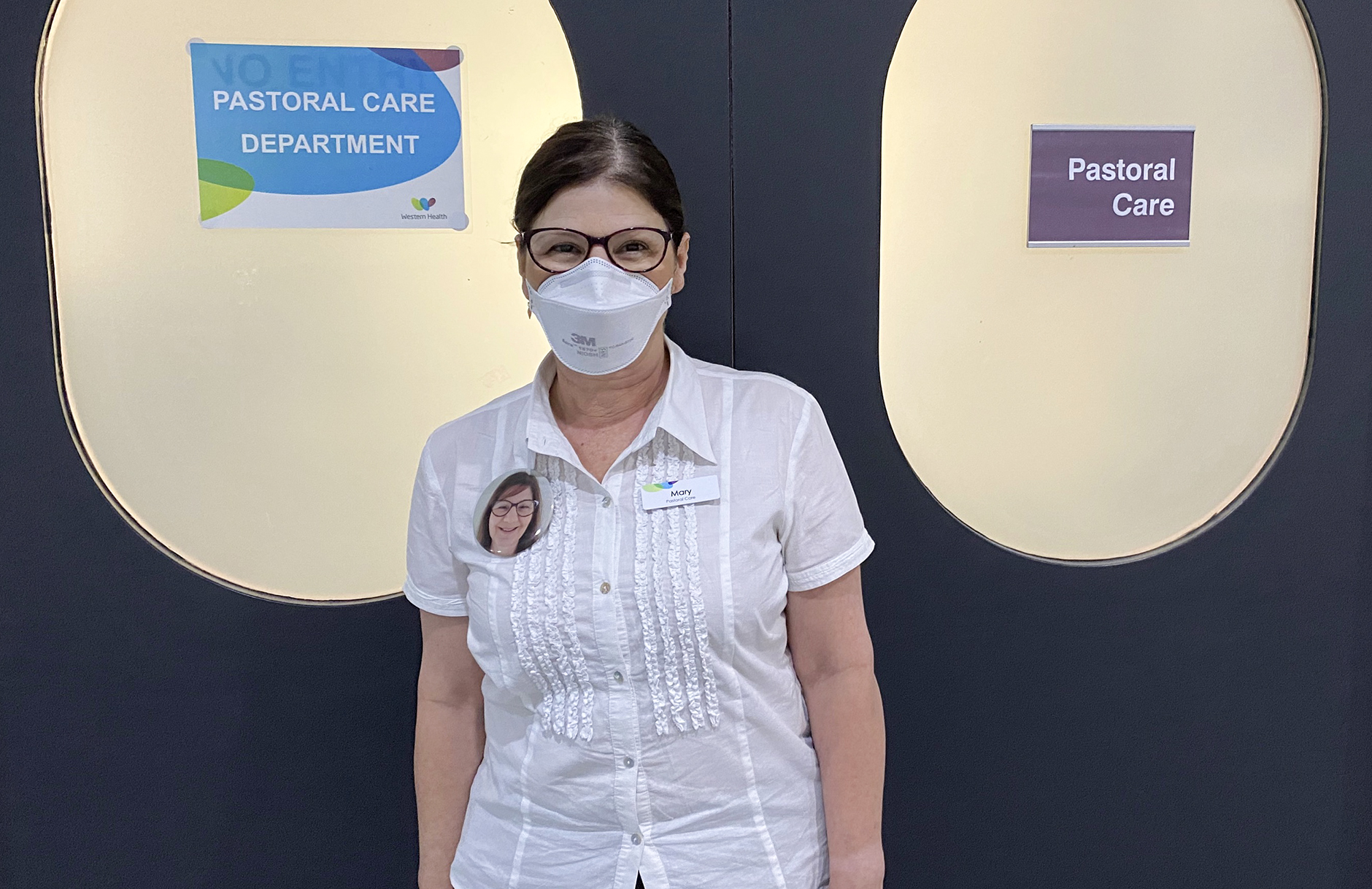The Pastoral Care team at Western Health are the emotional and spiritual backbone for our patients, families and staff.
They are selfless listeners, a quiet presence that promotes open and safe conversations that can manifest into moments of hope and resilience.
They are there for the parents of a baby who faces the hardest of starts to life, the patient and their loved ones grappling with a life-changing event, or a staff member seeking help to process a traumatic situation.
Pastoral Care Practitioners are also involved with arranging end-of-life blessings from different faiths and providing non-religious blessings or readings.
In addition to supporting families and their loved ones, over the past year the health service has enhanced pastoral care support, training and education for staff.
"The staff who come to us, tend to want to discuss things that they don't want to tell their managers, but they do want to discuss their experiences with somebody who shares their work environment," Pastoral Care Manager Sacha McDonald said.
"Often those conversations are about the existential-spiritual aspects of healthcare work, such as: the place of hope, the question of why bad things happen to good people and the concept of one's own mortality."
T o learn more about the special role Pastoral Care play in our health care service, we'd like to introduce you to Western Health Pastoral Care Practitioner Mary Anastasiou
o learn more about the special role Pastoral Care play in our health care service, we'd like to introduce you to Western Health Pastoral Care Practitioner Mary Anastasiou
Mary, you are one of our Pastoral Care Practitioners, can you explain what your role involves in a hospital setting?
Pastoral care is about coming alongside patients, their families and staff. It is spiritual and emotional support, it's also about being a companion when someone is in a traumatic situation. It involves: lots of listening and validation, asking difficult questions, sitting with people who are often fearful and anxious, whether it because of news of a poor prognosis, or a new diagnosis. It's accompanying them on their journey and supporting families and patients on the wards. We help them make sense of their suffering, normalise their grief and give them an opportunity to work through their feelings. We often tackle existential questions that need to be asked and not necessarily answered.
During COVID, there were many patients and families who have had the added trauma of not being able to be together due to restrictions. We became their companions on their journey.
We provide support in person and over the telephone, often giving family and patients the chance to talk about their concerns and fears.
What qualifications and experience do you need to work in Pastoral Care?
You need a University Degree in Theology, Counselling or Social Work and a unit of Clinical Pastoral Education. I did a Counselling degree and I discovered Pastoral Care during my first placement at the Peter MacCallum Cancer Centre. Until then, I was planning to be a counsellor in the community.
You don't need to have a faith to work in Pastoral Care, but it can help. We are respectfully across a range of religions and beliefs. We also have a list of external faith representatives that we can call upon, if required.
I have been working Pastoral Care for a decade and I love working at Western Health, it's so multicultural. I am an Australian born Greek. The Greek patients love it when you speak to them and you can just see them relax. It's a great team here; we all bring our own unique backgrounds and interests to our role and support each other.
What do you enjoy about your role?
I love people and hearing their stories and supporting them on their journeys, it's a privilege.
How have you supported staff at Western Health?
Staff are often at the centre of trauma, especially during COVID and they can benefit from talking to someone who is based in the hospital and who knows their work. Soldiering on is not always the best approach.
We all have our personal and professional loads to carry and COVID has amplified that.
Talking to someone from the Pastoral Care team can relieve them of the load they are carrying.
Our team works collaboratively with staff, patients and their families.
For instance, a patient told me that they are scared of dying and wanted to understand what to expect, so I asked a doctor or nurse to have a conversation with them about what is likely to happen. It's about giving patients and loved one's permission to ask questions and advocating for them.
Can you please share with us one of the most rewarding moments in your career?
I came into a patient's room and spoke to their sister who was in palliative care and also had mental health issues. She explained that her sister was very spiritual and would appreciate prayers. While I was in the room, the patient became very agitated; her sister asked if she wanted to pray. She consented and lay down on the bed. The sister left the room and I prayed with the patient. She became calm and I held her hand and she eventually fell asleep.
When the sister came back into the room, she was so moved by the fact that I was holding her hand and with tears in her eyes she thanked me for caring for her sister.
